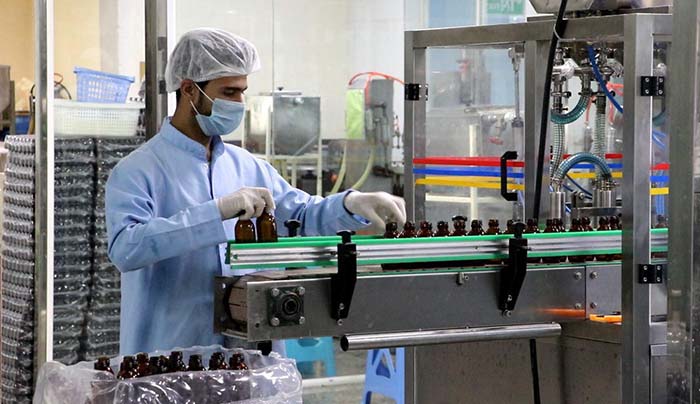
The Largest Pharmaceutical Factory Opens in Kabul with a Cost of $50 Million
Bayan News – A pharmaceutical factory named “Sanopharma” has been inaugurated in Kabul with a $50 million investment, and the factory has been established in partnership with 70 investors for the next six years.
The pharmaceutical factory was officially opened on Friday (September 7) in the presence of Kabul’s acting government officials, private sector representatives, and pharmaceutical companies.
Mohammad Saeed, the CEO of Sanopharma, stated during the opening ceremony that the factory will produce approximately five million tablets, two million and 200 thousand capsules, and 100 thousand bottles of syrup on a daily basis.
Saeed added, “We have very high production standards here and we have created employment for many individuals, 90% of whom are Afghan citizens, and that is a good thing.”
The General Manager of Sanopharma’s manufacturing company stated that in the past twenty years, companies had been importing low-quality products from other countries, which had been detrimental to domestic production companies.
Abdul Bari Omar, the head of the National Medicine and Food Administration in the government, emphasized in his speech during the event that the Islamic Emirate supports domestic production.
According to Omar, instead of importing foreign products, merchants should invest their capital in domestic production and revive local manufacturing factories.
He highlighted that the Islamic Emirate has initiated a serious fight against corruption, and this can provide the grounds for investment.
The head of the administration also stated that Afghanistan’s economic independence is achieved through the support of both domestic and foreign investors, and efforts should be made to prevent the importation of low-quality medicines.
Meanwhile, the head of Afghanistan’s Chamber of Mines and Industries urged producers to meet international standards for their products.
Shirbaz Kaminzada added that out of the two billion dollars of imports, one billion is spent on importing medicine, and he stressed the need for serious attention in this field to achieve self-sufficiency in the pharmaceutical sector in Afghanistan.
Kaminzada also emphasized the role of Afghan citizens in the success of this endeavor and urged them to use domestic medicines to increase domestic production and improve the country’s economy.
It should be noted that Sanopharma’s manufacturing factory will produce over 20 types of medicine within the country over the next six years, and according to company officials, the produced medicines will meet international standards.







